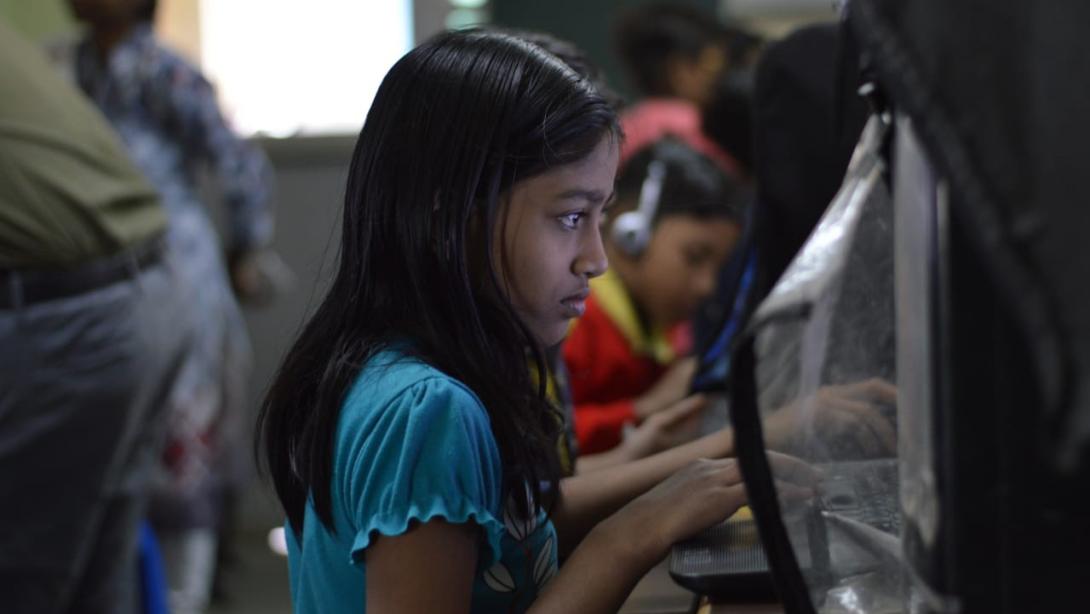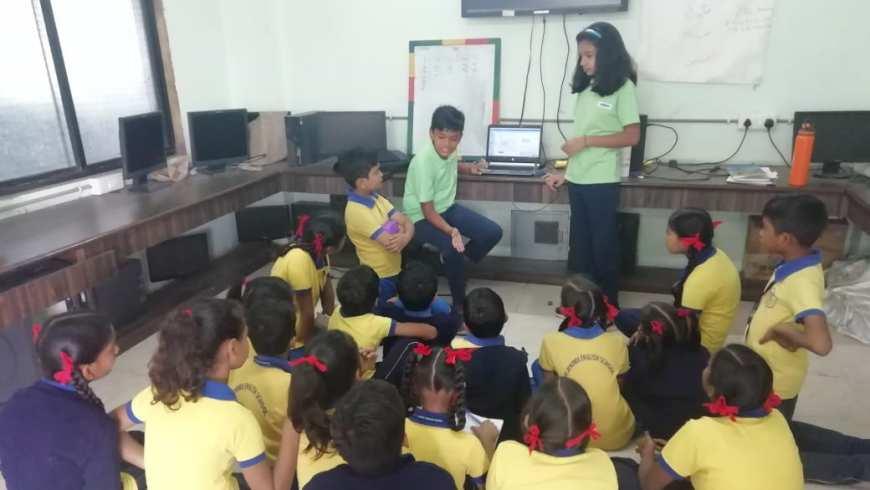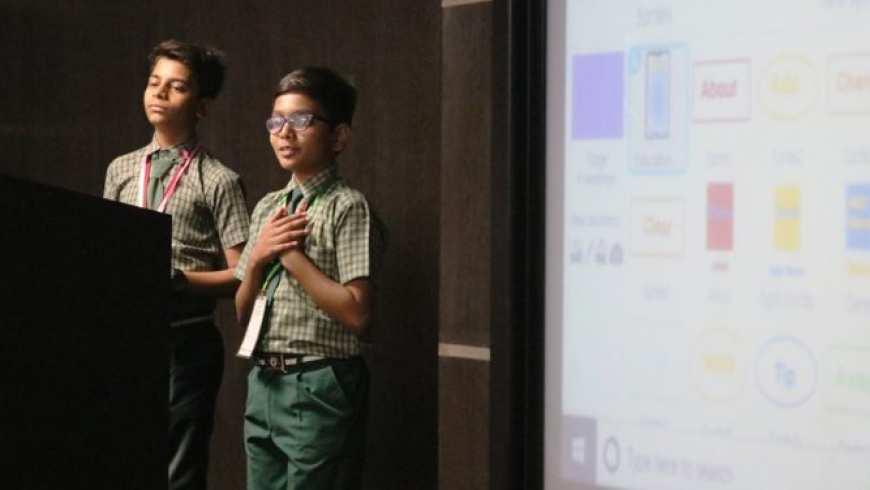A Teach For India Alumnus Brings a Contextualized Coding Curriculum to Schools

When Teach For India alumnus Irfan Lalani started teaching in a low-income private school in Ahmedabad, he noticed that the way students were being taught about computers and technology wasn’t significantly different than the way he was taught in primary school. “I grew up in a very low-income family where we never had an opportunity to work on computers throughout my schooling,” he explained. “Seeing that still happening to these kids, I realized something else needed to change.”
With a background in mechanical engineering, Irfan was passionate about technology and, prompted by what he observed in his school, he began to look into ways to improve the technology curriculum. Specifically, he was drawn to coding as a great tool for building children’s creativity and reasoning skills.
After finishing his Teach For India fellowship, Irfan authored and published a book about how to teach kids Scratch, a block-based visual programming language developed by the MIT Media Lab. However, he found that when he visited schools to promote the book, while staff and administrators were really excited about Scratch, they didn’t feel capable of implementing it themselves.
Ultimately, this is what pushed Irfan to use his own expertise in teaching coding to launch Code to Enhance Learning (CEL), a non-profit organization that works with schools and other organizations to bring a coding curriculum adapted for the Indian context to elementary-school-age children through student coding programs, teacher trainings, and an annual hackathon. Currently, CEL works with 500 kids in Ahmedabad, 80% of whom are from low-income communities and 70% of whom are girls.
CEL recently wrapped up the 2020 edition of their Kids Hackathon—a short sprint collaborative coding event for students in grades 5 to 9 across India. Kids are asked to identify a problem in their communities linked to the UN Sustainable Development Goals and then create an application on Scratch that solves the problem. This year, six students from grade 6 at Riverside School, a private school in Ahmedabad, worked with over 50 kids from schools who didn’t have IT instructors to prepare for the Hackathon. There were 1,264 registrations to the 2020 Hackathon, and you can learn more about the winners here.

When asked to reflect on the overall impact of CEL, Irfan points to two grade 6 students—Solanki Tarun Karshanbhai and Jadav Nirav Maganbhai—who participated in the 2019 Hackathon. In order to make lessons more engaging, they created an educational ‘phone’ on Scratch for grade 1 and 2 students, and actually took their program into grade 1 classrooms in their school for a month. The pair ended up winning sixth place in the Hackathon, but their project stands out to Irfan because it’s a demonstration of how CEL is helping students not just learn to code, but also understand that coding can actually effect change in their day-to-day lives. “When I see this,” Irfan explained, “I see our mission—of kids learning to code to express themselves and problem-solve—coming to life.”
CEL will be holding an online celebration of the 2020 Hackathon winners on Sunday, March 29 from 5:30 to 7 p.m. IST. The students will present their projects and the audience will have an opportunity to ask questions and learn about their development process. The event is open to all—sign up to participate here.




